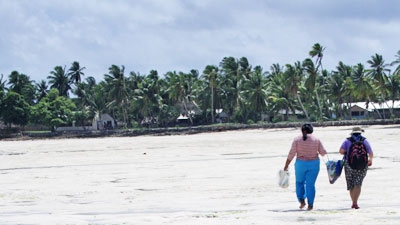Overview
Made up of 33 coral atolls spread over approximately 3.5 million km2 of ocean, the Republic of Kiribati is one of the least “connected” countries in the world. The majority of the population either has no access to information and communication technologies (ICT) or, even if they live within range of the existing, often unreliable networks, are unable to afford the service. Mobile phone penetration was 14 percent as of end-2011, and broadband Internet penetration less than 0.5 percent of the population. The sole service provider, Telecommunication Services Kiribati Ltd (TSKL) offers services on South Tarawa, Kirimati and is planning mobile network expansion to some Outer Islands close to the capital, South Tarawa. However, current projections indicate that fixed and mobile phone coverage in Kiribati will not exceed 20 percent by end of 2012 which is still very low by global and regional standards. The ICT sector in Kiribati requires new investment for services to expand.. The project aims to strengthen the legal, regulatory and institutional environment to stimulate such investment, and thereby enabling transition to a market-driven telecommunications sector. The project also seeks to facilitate improved connectivity for the Outer Islands.
Challenges
The cost of ICT services is high in Kiribati, both in absolute terms and in comparison to prices charged for services is similar to countries in the region. A recent benchmarking survey showed that international calls are the highest in the Pacific region. The main reasons for the limited and costly service include: the monopolistic market structure which limits opportunities for new capital investment in the market; the difficult operating environment, including costly international satellite bandwidth (Kiribati does not have access to a submarine fiber optical cable) and limited revenue streams; the lack of scale and difficulties recruiting and retaining experienced technical staff; and the high costs of maintaining services on remote and sparsely-populated islands.
Approach
The project will focus on the following activities:
ICT policy and legal support for the Ministry of Communications, Transport and Tourism Development (MCTTD). This component will assist the government in identifying and implementing options for restructuring Telecom Services Kiribati Limited, ito position it for a potentially competitive market, and support government in the process of licensing new market entrants. The government is currently preparing a new Communications Bill as the basis for market liberalization.
ICT regulatory support: a medium-term program of technical assistance and capacity-building for the Telecommunications Authority of Kiribati (TAK) to manage a liberalized, multi-operator market.
Outer Islands Connectivity, where the project will support analysis and technical assistance to develop an appropriate connectivity policy and strategy, including preparation of the scheme and necessary enabling instruments. Based on the findings of this analysis, the second phase of this component envisages the implementation of an output-basedsubsidy program for new ICT infrastructure and services delivery projects for the Outer Islands identified under this activity. The scope of this subsidy program will depend on the extent of coverage and service provision that can be achieved commercially through market liberalization and regulatory reform.
Project Locations
Technical assistance will be provided to institutions located in South Tarawa. The Outer Islands connectivity component will address remote locations unserved or under-served by ICT.
Bank Contribution
The total cost of the project is US$5.1 million. The World Bank will finance US$1.0 million through the International Development Association.
Partners
AusAID and the Government of New Zealand have contributed US$3.1 million and US$1.0 million respectively, through the Pacific Region Infrastructure Facility.
Toward the Future
The project commenced in February 2012 following the signature of the first PRIF grant agreement, and is expected to conclude by June 2017. With a more competitive telecommunications sector, which supports private sector participation and competition, Kiribati is expected to have improved service coverage and quality for th majority of its citizens, and sector institutions better equipped to oversee a competitive market, in the interests of service users.
